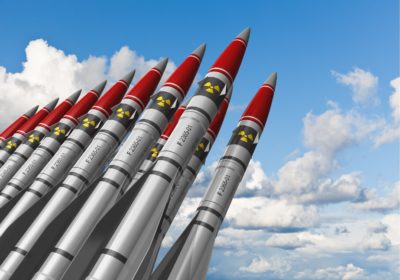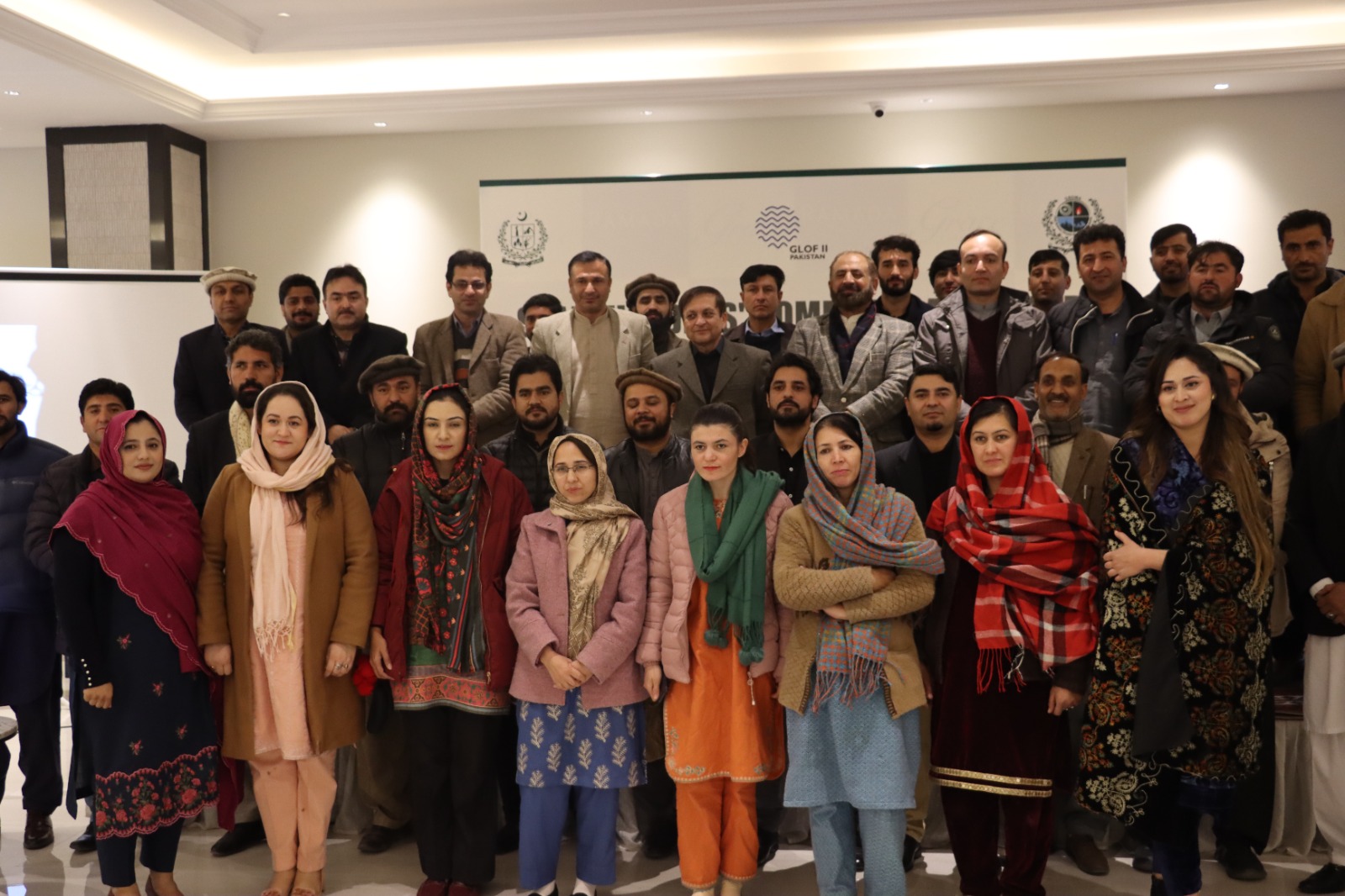By: Rabeea Bibi, Student of MS IR, My University, Islamabad
International community attention has long been focused on North Korea’s nuclear weapons program, despite countless attempts by all parties involved to prevent it. One of the main risks of future conflicts is the development of nuclear weapons in different situations. The creation of this weapon is seen to have the potential to jeopardize global security and peace. The stability of global security is threatened by the potential for nuclear weapons to develop into weapons of mass destruction. North Korea, one of the nations with nuclear weapons, is modernizing itself by concentrating its resources on heavy industries, a planned economy, and military advancement. The purpose of this study is to examine North Korea’sreasonsfor pursuing a nuclear program and discuss threats to international peace and security. It then assesses the potential consequences of open violation of the Treaty on the Non-Proliferation of Nuclear Weapons (NPT), indirect support to other nuclear aspirants, and direct threat to regional security.
In the aftermath of the Korean War and the American military’s deployment in South Korea,
North Korea began developing its nuclear program in the 1950s. Pyongyang has put forth a plan to expand its nuclear program and economy together. In the 1990s, Pyongyang restarted its nuclear program after a brief pause.North Korea continues to pursue its nuclear program regardless of the outcome of the six-party talks. Pyongyang carried out nuclear tests in 2003, 2006, 2009, 2016, and 2017, and despite repeated endeavorsby the international community, Pyongyang did not abandon its nuclear program.Since its nuclear test in 2016, North Korea possessed approximately ten nuclear warheads, indicating that it is almost capable of producing nuclear weapons. The threat to the security of East Asia, the Middle East, and global society is growing as a result of its recent missile launches and another nuclear test, as well as its leadership role in encouraging other nuclear aspirants.This article argues that North Korea’s pursuit of nuclear weapons comes mostly from the regime’s need to survive and that the country won’t give up on its nuclear program until its survival is in exchange. The international community must act quickly to implement stronger sanctions to endthe nuclear program of Pyongyang and prevent it from presenting additional security dangers to the peace and stability of the world.More precisely, I try to investigate why Pyongyang began its nuclear program in the first section.I will then focus on the threat that North Korea poses to global security and peace.
There is a viewpoint that the proliferation of nuclear weapons has various reasons. A state’s “threat perceptions, economic assets, technological proficiency, internal political systems, and strategic considerations are the specific factors that influence a state’s decision to seek nuclear weapons.Out of all of these, I believe that threat perceptions, national political systems, and strategic considerations are the three primary factors behind the Democratic People’s Republic of Korea’s(DPRK’s )pursuit of nuclear weapons. First off, even in situations where a state’s conventional military capabilities are insufficient, nuclear weapons can serve as a type of nuclear deterrent against potential and current adversaries. South Korea and its allies pose a serious and genuine threat to North Korea.Second, North Korea intends to use nuclear weapons to ensure its existence within the unique domestic political systems. Additionally, the regime’s policymakers think that having nuclear weapons will boost the regime’s standing in the international community.Thirdly, a state’s development of nuclear weapons is motivated by strategic concerns about national defense, and Pyongyang aspires to prevent an American invasion using nuclear weapons. It is practically difficult for North Korea to give up its pursuit of nuclear weapons in exchange for security guarantees, diplomatic recognition, and financial assistance as it never sees its nuclear program as a bargain. This is because persuading a state to abandon its nuclear program is a challenging taskeven when one of the three factors is present.The Democratic People’s Republic of Korea (DPRK) may be the most secretive state in the world, but increasing evidence indicates the main focus of its nuclear program ismotivated by the desire for national security and the perception of external threats.
Threats to International Peace and Security, North Korea’s nuclear program poses a threat to East Asian security, but it also somewhat motivates potential proliferates like Iran to pursue their nuclear programs, which will have a significant impact on the nuclear nonproliferation regime.Threat to Regional Security,North Korea’s nuclear program may not have been the direct cause of the main East Asian nations developing nuclear weapons, but it is more likely to have made the security situation between China, the US, Japan, and South Korea worse, threatening the stability of the regional structure.Due to North Korea’s nuclear programme, Japan has stated that it wants to increase military activity to develop the capacity for “collective self-defense”, China has expressed concern for Japan, fearing that an increase in Japanese military activity would jeopardize China’s national security. Similarly, China’s nuclear deterrence appears to be compromised by South Korea’s missile defense system, which has led to economic sanctions from China against the country.All of the region’s major powers see East Asia as a barrier to their economies, collaborate on global counterterrorism efforts, and defend the environment, and other issues. As a result, they have no intention of engaging in military conflict.Support to other nuclear aspirantsandother nations that are thinking about getting nuclear weapons can learn some valuable lessons from nuclear weapons development activities in North Koreaand the international community’s response to them.First,if stronger and more effective action is not taken by the international community, other nuclear aspirants, such as Iran, would be inspired to start their programs.If this happens, the Democratic People’s Republic of Korea may be able to complete its nuclear program at a minimal cost.In particular, it will be challenging for the international community to take strong action to put an end to nuclear programs in Iran and other possible proliferant nations if they maintain that they are merely supplying nuclear energy for domestic use and because “Iran has proclaimed that its program is peaceful”.Second,it is more possible that the DPRK will provide nuclear weapons or technology, as well as technical assistance, to other non-nuclear statesif it is successful in producing nuclear weapons. Because of the severe restrictions imposed by the international community,North Korea will be prepared to sell off its nuclear weapons to raise more money.North Korea can profit from the selling of nuclear weapons technology to many purchaser governments, such as Iran and Egypt, even if the US and the UN closely monitor Pyongyang’s nuclear weapons exports to prevent them.Violation of the NPT, it is well known that nuclear tests were carried out in the 1990s by both India and Pakistan, which has damaged the nonproliferation regime and caused problems for the international community. To compound matters, the DPRK conducted nuclear tests and was the first nation to leave the NPT, causing further harm to the nonproliferation regime. If the international community does not penalize the DPRK for its withdrawal, then the NPT is not mandatory and can be contested through noncompliance and disobedience. In other words, Pyongyang is not only endangering the stability of the area but also posing a threat to the NPT.In conclusion, the North Korean regime’s main objective is to endure in the harsh global society while the US continues to perceive it as a threat. North Korea chose to acquire nuclear armsto accomplish this goal. To maintain the lead among nuclear aspirants, North Korea’s frequent missile and nuclear test launches pose more danger to the security of the Middle East, East Asia, and international society. While diplomatic isolation, embargoes, and sanctions have
been implemented by all parties involved, no real progress has been made.
 Daily Mountain Gilgit Baltistan News Website News website of Daily Mountain Gilgit Baltistan
Daily Mountain Gilgit Baltistan News Website News website of Daily Mountain Gilgit Baltistan




